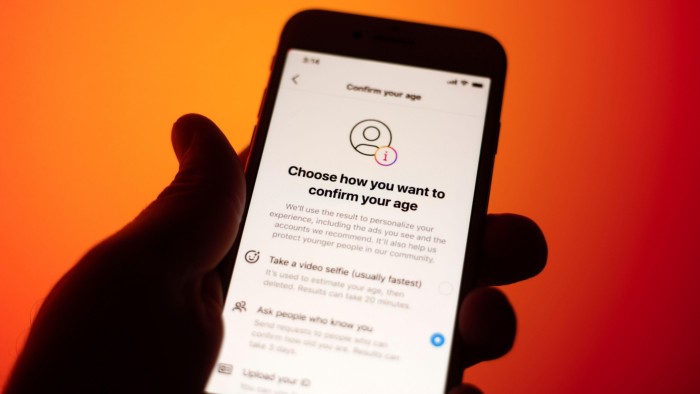Stay informed with free updates
Simply sign up to the Technology sector myFT Digest — delivered directly to your inbox.
The writer is senior fellow in technology policy at the Cato Institute and adjunct professor at George Mason University’s Antonin Scalia Law School
Last month, the US Supreme Court upheld a Texas law that requires verification of a user’s age when visiting websites with pornographic content. It joins the UK’s Online Safety Act and Australia’s ban on social media use by under 16s as the latest measure aimed at keeping young people safe online.
While protecting children is the well-intentioned motivation for these laws, they are a blunt instrument applied to a nuanced problem. Instead of simply safeguarding minors, they are creating new privacy risks.
The only way to prove that someone is not underage is to prove that they are over a certain age. This means that Texas’s requirement for verification applies not only to children and teenagers but to adult internet users too.
While the Supreme Court decision tries to limit its application to specific types of content and compares this to offline verification methods, it ignores some key differences.
First, uploading data such as a driving licence to verify age on a website is a far more involved and lasting interaction than quickly showing the same ID to an assistant when purchasing alcohol or other age-restricted products in a store.
In some cases, laws require websites and apps to keep user information for a certain amount of time. Such a trove of data can be lucrative to nefarious hackers. It can also put individuals at risk of having sensitive information about their online behaviour exposed.
Second, adults who do not have government-issued ID will be prevented from looking at internet content that they have a constitutional right to access. This is not the same as restricting offline purchases. Lack of an ID to buy alcohol does not prevent anyone from accessing information.
Advocates for verification proposals often point to alternatives that can estimate a person’s age without official ID. Biometrics can be used to assess age via a photo uploaded online. Financial or internet histories can be checked. But these alternatives are also invasive. And age estimates via photographs tend to be less accurate for certain groups of people, including those with darker skin tones.
Despite these trade-offs, age-verification proposals keep popping up around the world. And the problems they are trying to solve encompass an extremely wide range. The concerns that policymakers and parents seem to have span from the amount of time young people are spending online to their exposure to certain types of content, including pornography, depictions of eating disorders, bullying and self-harm.
Today’s young people do have access to more information than any generation before them. And while this can provide many benefits, it can also cause worries about the ease with which they can access harmful content.
But age verification requirements risk blocking content beyond pornography. They can unintentionally restrict access to important information about sexual health and sexuality too. Additionally, the requirements for ID could make young people less safe online by requiring more detailed information — laying them open to exploitation. As with information taken from adults, this could create a honeypot of data about their online presence. They would face new risks caused by the very provisions intended to make them more safe.
While age verification laws appear well-intentioned, they will create new privacy pitfalls for all internet users.
Keeping children and teenagers safe online is a problem that is best solved by parents, not policymakers.
Empowering young people to have difficult conversations and make smart choices online will provide a wider range of options to solve the problem without sacrificing privacy in the process.





1 Comment
wt37jx